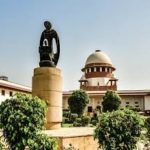Bijender Singh (the Appellant) was enrolled in the army on 30th September 1985 and was invalidated out of service on 14th August 1989 due to “generalized tonic clonic seizure” (epilepsy). The Invalidating Medical Board assessed his disability as less than 20% and not attributable to or aggravated by military service…. Subsequent Re-Survey Medical Boards also assessed his disability between 15% and 19% for life, reaffirming that it was not attributable to service.
The Appellant sought a disability pension, including a 50% disability element, effective from 1st January 1996, arguing that his disability was attributable to his service…. His claim was rejected by the respondents on 30th July 2013. The Armed Forces Tribunal, on 26th February 2016, upheld the rejection, finding his disability less than 20% and not attributable to service. A review application was also dismissed by the Tribunal on 22nd January 2018. The Appellant then brought the case before the Supreme Court.
Law Involved The case primarily involved the interpretation and application of the Pension Regulations for the Army, 1961 (specifically Regulation 173 on conditions for disability pension and Regulation 183 on its components ), and the Entitlement Rules for Casualty Pensionary Awards, 1982. Key rules included:
Rule 5: Presumptions regarding a member’s sound physical and mental condition upon entering service, and the presumption that any subsequent deterioration is due to service unless recorded otherwise….
Rule 9: The onus of proof lies on the authority to disprove entitlement to pension, with the benefit of doubt given to the claimant 2021.
Rule 14(b): Presumption that a disease leading to an individual’s discharge “shall ordinarily be deemed to have arisen in service” if no note was made at the time of entry regarding its existence 2022. The Court also considered instructions from the Ministry of Defence, particularly a letter dated 20th July 2006, concerning the rounding off of disability percentages to 50% for disability element in certain invalidment cases . The appeal itself was filed under Section 30 of the Armed Forces Tribunal Act, 2007.
Reasoning The Supreme Court noted that the Tribunal had based its decision solely on the medical boards’ findings without adequately considering the legal presumptions24. The Court highlighted that the medical boards had not provided reasons why the Appellant’s disease could not have been detected prior to his entry into service, nor why it was not attributable to or aggravated by military service…. The Court emphasized that the burden of rebutting the presumption that the disability was attributable to or aggravated by military service lay with the employer.
Drawing on previous judgments (e.g., Dharamvir Singh and Rajbir Singh), the Court reiterated that if a member was sound at entry, any subsequent deterioration is presumed to be due to service, and the benefit of doubt must favour the claimant…. Since no note was made at the time of the Appellant’s acceptance into service regarding his condition, the disease should ordinarily be deemed to have arisen in service….
Furthermore, the Court referred to the 2006 Ministry of Defence letter, which clarified that even a 1% disability, if attributable to service and leading to invalidment before 1st January 1996, would entitle the individual to a 50% disability element after rounding off…. The Appellant was invalidated out of service in 1989, falling within this criteria if the disability was found attributable. The Court found the Tribunal’s previous orders “wholly unsustainable in law” because they failed to properly apply these well-settled principles and legal presumptions.
Holding The Supreme Court allowed the appeal, setting aside the Tribunal’s orders dated 22nd January 2018 and 26th February 2016.
The Court directed the respondents to grant the Appellant the disability element of his disability pension at the rate of 50% with effect from 1st January 1996. The respondents were ordered to pay the arrears of the disability pension with 6% per annum interest within three months32. There was no order as to costs.
Bijender Singh V. Union Of India & Ors.
Supreme Court: 2025 INSC 549: (DoJ 23-04-2025)






